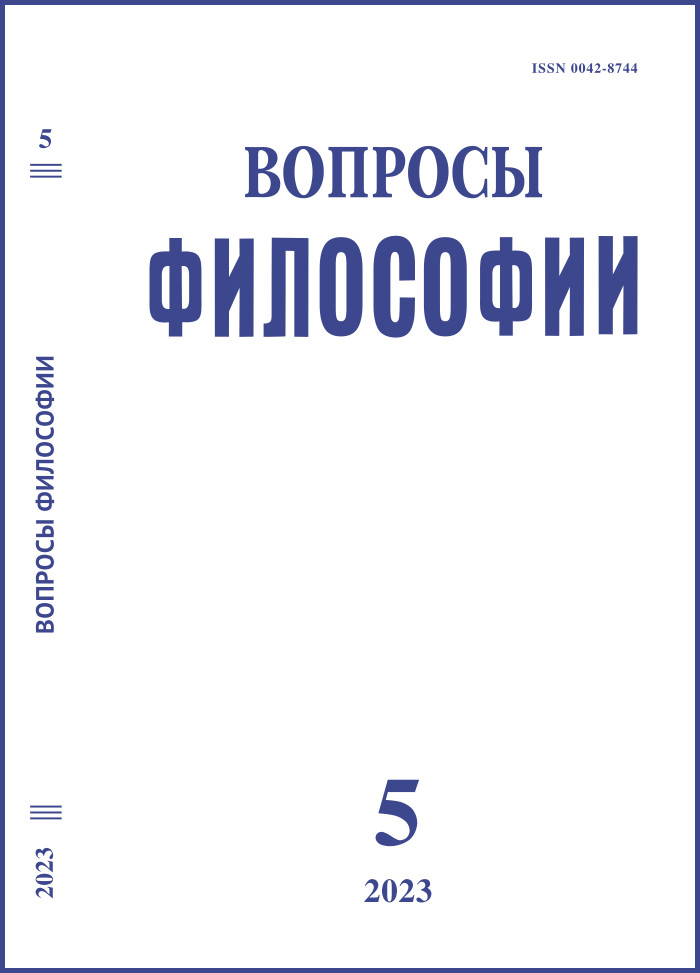Ф.Г. Якоби и московская школа духовно-академической философии XIX в. Часть II. Ф.Г. Якоби и В.Д. Кудрявцев-Платонов
DOI:
https://doi.org/10.21146/0042-8744-2023-5-119-129Ключевые слова:
история русской философии, духовно-академическая философия, Фр. Якоби, В.Д. Кудрявцев-Платонов, И. Кант, разум и рассудок, естественная теологияАннотация
В статье анализируется отношение профессора философии Московской
духовной академии второй половины XIX в. В.Д. Кудрявцева-Платонова к философии Фр. Якоби, прослеживается преемственность философских взглядов Кудрявцева и его учителя Ф. Голубинского, нашедшая отражение во внимании к апологии теизма у Якоби и высокой оценке его учения. Кудрявцев присоединяется к критике философского рационализма Якоби и поддерживает его учение о разуме как органе непосредственного восприятия Бога и свойств духовной реальности. Вместе с тем в докторской диссертации о сущности и происхождении религии Кудрявцев указывает на ряд недостатков философии Якоби, что подробно рассматривается в статье. При изложении критики Кудрявцева, в частности, обсуждаются понятие природы у Якоби, его отношение к религиозной традиции, причины расхождений между Кудрявцевым и Якоби в вопросе о возможности рационального познания Бога и в оценке доказательств бытия Божия, влияние Канта на Якоби. Делается вывод об обусловленности новой дифференцированной оценки учения Якоби у Кудрявцева-Платонова новыми задачами духовно-академической философии второй половины XIX в.

